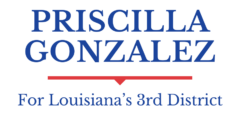The “Break the Cycle of Violence Act” (H.R. 4118) aims to establish federal grant programs and related entities to support community-based violence intervention initiatives. Introduced by Rep. Steven Horsford (D-NV) and supported by numerous co-sponsors, the bill focuses on communities disproportionately affected by homicides and violence.
The act mandates the Department of Health and Human Services (HHS) to award grants for coordinated community violence intervention programs. These initiatives include evidence-based strategies such as street outreach, conflict mediation, and support services for high-risk individuals. Additionally, HHS must set up related entities to oversee and support these programs, ensuring they are effectively addressing the root causes of violence and helping to reduce crime rates in affected areas (Congress.gov) (ProPublica) (Vote Smart).
The decision of Congressman Clay Higgins to vote against the “Break the Cycle of Violence Act” (H.R. 4118) represents a profound and dramatic threat to the safety and well-being of women, particularly those in communities ravaged by violence. This bill is designed to implement community-based violence intervention programs, which have been proven to reduce crime and save lives (ProPublica) (Vote Smart). By opposing this bill, Congressman Higgins is essentially turning his back on critical support structures that could protect women from the daily terror of violence.
Imagine a woman living in a neighborhood where violence is rampant. Each day, she faces the threat of physical harm, fearing for her life and the safety of her children. The “Break the Cycle of Violence Act” offers a lifeline through funding for initiatives like conflict mediation and support services for at-risk individuals. These programs have the potential to de-escalate dangerous situations before they result in tragic outcomes (ProPublica) (Vote Smart).
Congressman Higgins is essentially opposing these life-saving measures by voting nay. Numerous women could become vulnerable as a result of this choice, lacking the essential resources required to break the cycle of abuse. It robs them of the prospect of a more secure neighborhood where they won’t have to live in continual fear of turning into another statistic.
The effects of this choice are immediate and real, not hypothetical. Women in dangerous communities are more likely to suffer abuse, trauma, and even death without the help of this bill. Congressman Higgins’s vote is a direct blow to the protection and empowerment of women, who are the ones who most need these interventions, and goes beyond simple politics. For many women across the country, this decision might mean the difference between life and death; thus, its dramatic impact cannot be exaggerated.
